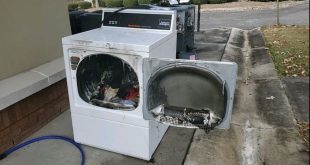As world leaders struggle to understanding rising gas prices, the VSU student population is heavily impacted by costs.
The rollercoaster ride associated with gas prices began its ascendancy prior to April of 2009.
At the onset, the price per gallon was close to $2 per gallon.
However, a peak of $4 per gallon, on average nationally, hit the pumps two years later in May 2011.
Prices never hit the low seen in 2009, only hitting a national average low of $3.19 per gallon at Christmas 2011.
Now that gas prices have almost reached the May 2011 all-time high, students have begun to feel its impact on their wallets.
As a result, many students are making spending choices around their need for gasoline, and the subsequent influence on other aspects of their budget.
Ashley Jacobs, a junior Spanish major, is transferring to VSU in the fall 2012.
Jacobs had been taking classes online, but when the online classes were no longer a viable option, she elected to move from Baxley, Ga. to Valdosta.
Her new apartment will be about one mile from the campus, so that she can walk to classes.
“It’s close to campus and gas prices suck,” Jacobs said.
Jacobs said that perhaps she may pay more in rent, but it will save her gas money as a result.
With an average of about 5,300 commuter parking-permit sales for the last three years, VSU’s commuter population is nearing an all-time high.
More students driving to campus means that the students’ wallets will be squeezed by the influx of gas prices.
Many other students mirrored Jacob’s comments.
Michael Pate, a junior communications major, explains how he spends, on average, $65 a week in gas.
“Sometimes I wish I had a bike,” Pate said.
Frank Visker, a senior finance and accounting major, is a commuter-student who doesn’t drive.
Visker lives one mile from the business campus and utilizes the school’s busing system to navigate to campus.
Visker was in the military and is using the GI Bill for college tuition.
“One of the reasons that I don’t drive is that gas is expensive,” Visker said. “When I do drive, I try to multitask when I go out, [because] the money I get is very limited.”
VSU tracks which county students hail from.
Those from the surrounding five Georgia counties (Berrien, Brooks, Cook, Echols, and Lanier) and Lowndes county are only a fraction of the total number of students that attend VSU.
Students from the surrounding five counties may drive, on average, in excess of 20 miles one-way daily.
Still, there are some students who, while concerned about gas prices, don’t let it hold them hostage to the immediate area.
Hassanat Oshodi, a junior psychology and philosophy major, realizes that gas is a necessity. As a result, she doesn’t let it stop her from visiting her family in Atlanta.
“I [sometimes] have to decide whether I want to eat out or make a sandwich at home,” Oshodi said. “At the end of the day, I wouldn’t want it to alter me going to see my family.”
Logan Pierce, a senior biology major, walks everywhere or rides his bike. As a result, he has filled up his gas tank only twice, since the beginning of the semester.
“It cost me close to $50 to fill up,” Pierce said. “I could use that on other things, like food.”
Commuters aren’t the only ones impacted by gas prices.
Jasmine Hawkins, a freshman psychology major, lives on campus and uses a bicycle for commuting.
“Biking is a lot easier,” Hawkins said.
A car is on Hawkins’ wish list, but she is concerned with the cost of having one.
“I want one though, but not with gas prices right now,” Hawkins said.
Gas prices have a stranglehold on the collective national wallet and students who are generally on a limited income feel that grip as strongly as the rest of the nation.
 The Spectator The independent student newspaper of Valdosta State University
The Spectator The independent student newspaper of Valdosta State University





